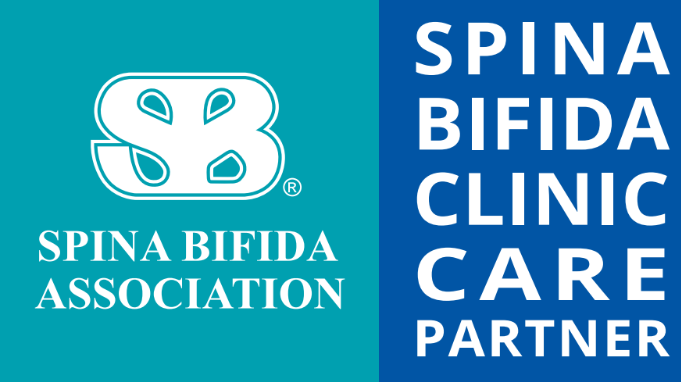The Philip A. Keelty Center for Spina Bifida and Related Conditions serves children and adults with spina bifida, myelomeningocele (meningomyelocele) and myelodysplasia, as well as other related conditions of the brain and spine, such as hydrocephalus, Arnold-Chiari malformation and tethered spinal cord syndrome.
We also see children with other complex birth defects, such as caudal regression syndrome, sacral dysgenesis and other multiple congenital anomaly syndromes. Through an interdisciplinary approach, we provide quality medical care that focuses on optimizing health and functioning, preventing secondary conditions and coordinating healthcare services.
Clinic Care Partner

The Philip A. Keelty Center for Spina Bifida and Related Conditions is a designated Clinic Care Partner of the Spina Bifida Association (SBA). The SBA Clinic Care Partner program is an initiative that stems from the existing Spina Bifida Collaborative Care Network (SBCCN), which works to identify the needs of people with Spina Bifida, connect with health care providers, identify clinics with the best outcomes and identify research priorities.
Clinics who become SBA Clinic Care Partners have met 10 standards to implement best practices so that patients receive the best care possible in order to have fulfilling lives.
To learn more about the practices and processes needed in order to become a Clinic Care Partner, click here.
Our Team
Individuals with spina bifida and spinal cord defects have complex medical and rehabilitation issues involving multiple systems, particularly affecting the central nervous, urinary, gastrointestinal and musculoskeletal systems. The Keelty Center team brings together specialists from multiple disciplines to provide comprehensive medical care.
Our Approach
Spina bifida is a complex condition that requires comprehensive care to address multiple challenges. The Keelty Center offers a unique approach to comprehensive care by integrating care and support not only for a patient’s medical needs, but also for habilitative, educational and social issues, such as school readiness or athletic participation. We also evaluate and treat secondary conditions—such as weakness, learning disabilities, chronic wounds, and bowel and bladder incontinence—through a working partnership between Kennedy Krieger team members and our patients and their families. Treatment plans are coordinated with the patient’s family, primary care provider, school and other applicable community services.

